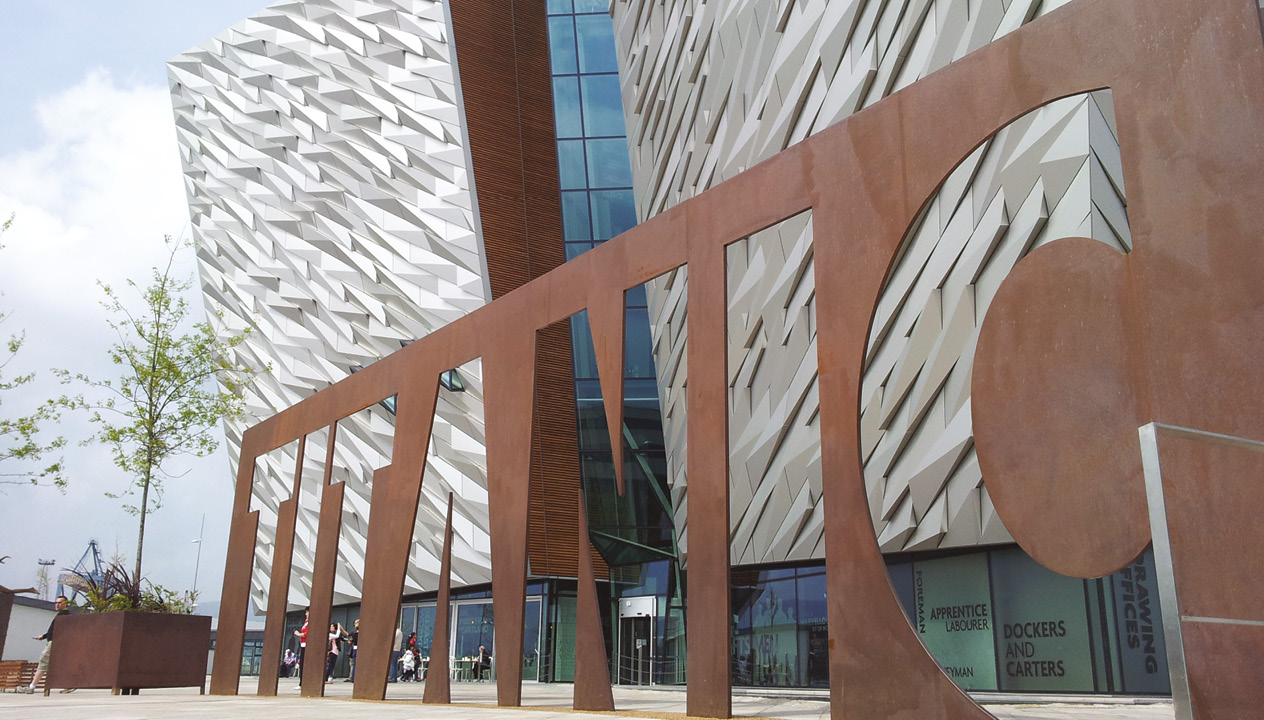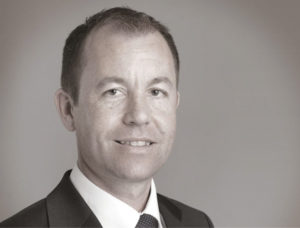Testing times for tourism


Identifying Brexit as the greatest challenge facing Irish tourism since the global recession in 2008, the Irish Tourism Industry Confederation (ITIC) has published a Call for Action document. Ciarán Galway meets with Chief Executive Eoghan O’Mara Walsh.
Opening the discussion, O’Mara Walsh outlines the ITIC’s rationale for producing its Brexit and Irish Tourism report. “If the UK economy does dip, the first thing people will cut for the sake of their pockets is travel and tourism – that second holiday, that city break or that trip over to see relatives in Ireland,” he asserts. From a Republic of Ireland perspective, around two in every five international visitors come from UK market; a massive proportion of the market.
Indeed, the latest CSO figures, which came out in late May, show that British visitors to the Republic of Ireland are down 10 per cent for the period February to April. “What this illustrates is that the tourist industry is not crying wolf over our Brexit concerns. The impact is real and materially felt. We think that urgent government action is needed to minimise this.”
Consequently, “We felt compelled to take a lead on it, analyse the implications and come up with what we thought would be good policy solutions so that we could in turn attempt to inform the Government and the Minister to pursue pro-tourism policies.”
All-island brand
O’Mara Walsh outlines that what is necessary for the tourism industry to succeed on the island of Ireland is “a seamless product and experience for the visitor, north, south, east and west”.
“The logic for this is that the international visitor perceives Ireland as a single island destination and doesn’t differentiate between the two jurisdictions. As such, it makes much more sense to market it as a single entity and we obviously have a lot of interaction with Tourism Ireland and northern tourism bodies,” he asserts.
“Tourism is the very definition of free movement of people so anything that impacts upon it, whether that be delays, additional costs or psychological barriers is negative. The all-island marketing of Ireland as a destination has worked very well. Brexit does complicate things, particularly if it is a hard Brexit accompanied by a hard border. Two thirds of the island remaining within the EU and one third existing outside of the EU will make things more difficult.”
Competition
One of the issues that may arise as a result of Brexit is the UK no longer being bound by EU regulations and standards. The UK could be free of state aid rules that currently apply to EU member states and could use this to their advantage and attract more tourists. However, the tourism industry leader emphasises: “The two jurisdictions may enter into more direct competition, but in saying, international tourists generally don’t visit the North in isolation. More often they enter via Dublin or gravitate southwards. You have to remember that 80 per cent of international visitors who enter the North actually access it via Dublin airport.”
O’Mara Walsh stresses the potentially adverse impact of a hardened border as a by-product of Brexit. “If we have a border, if we have border checks, if we have delays, queues, attributed costs or any psychological barriers it simply will not be benign from a tourism perspective. That is something that we are anxious about. When the new UK-EU deal is resolved, it is vital that the common travel area is maintained.”
Aviation
Furthermore, ITIC identifies aviation as one underappreciated complication which has emerged as a consequence of Brexit. Currently, the UK is part of the single market and therefore is part of the EU Open Skies Agreement and the single aviation market. “This means that EU airlines can fly between each other’s airspace without any difficulties. However, when the UK leaves the single market it also leaves the single aviation market which, in theory, means that UK airlines will not be able to fly into other EU countries and vice versa.
“I imagine, and we all hope, that it will be immediately resolved and a new agreement put in place to maintain the liberalised aviation access that we presently enjoy. It is too important. The consumer demands that aviation access is maintained between the UK and the EU.”
Diversification
In order to counter the threats posed to Irish tourism, O’Mara Walsh argues that more funding is required for the all-island marketing agency. “Tourism Ireland has had its budget slashed by over 40 per cent in the last seven years. That money needs to be restored to the budget so that it can be aggressively invested in new markets to ensure that we don’t have the dependency upon the UK that currently exists.”
Germany, he argues, is a classic example of an untapped market. “Germany has 80 million outbound trips per year and is the largest travel market in Europe. It’s right on our doorstep and yet Ireland receives less than 1 per cent of that market. The type of diversification required doesn’t happen on its own. You need to create awareness of Ireland as a holiday destination and funding can facilitate that. That comes down to marketing and media spend. The product is very good, but equally we need help to acquire the tools required to maintain our competitiveness.
“The downturn in Tourism Ireland’s marketing funds over the last few years needs to be reversed immediately. That’s a call to the Dublin Government, but also the northern Executive that they must support the industry. It’s the biggest indigenous sector on the island with 220,000 employed in the South and a further 60,000 employed in the North. It cannot be offshored or outsourced and in terms of employment it’s bigger than both agriculture and construction.”
“What we need for tourism to succeed on the island of Ireland is a seamless product and experience for the visitor, north, south, east and west.”
Competitiveness
In the current economic and political climate competitiveness is crucial, especially for an export industry like tourism. “For the island as a whole, investment should be made in terms of product and infrastructure. We need new attractions of scale and of interest. The North is developing a product or an experience of scale, so we will see what emerges. Having those hooks, both in terms of marketing and product is important if we want to sustain the industry,” maintains the ITIC CEO.
“In the North we saw how the likes of the Titanic Belfast project immediately created a destination driver for the city. Likewise, we need those new, exciting and compelling products of scale that appeal to international visitors to come onstream every few years. We cannot be complacent and assume that The Wild Atlantic Way or the Causeway coast is enough. We must consistently add to, improve and generally enrich our product.”
Some of the major factors which could facilitate enhanced competitiveness from a Northern Ireland perspective concern improved taxation for tourism. O’Mara Walsh highlights: “In the North the tourism VAT rate is currently at 20 per cent. Meanwhile, 17 out of 19 eurozone countries have VAT rates of 10 per cent or less for the tourism industry, so the North is way out of kilter.
“Simultaneously, with regards to Air Passenger Duty, for flights originating within Northern Ireland rates are set at £13/£26/£78 [reduced/standard/higher] for destinations within 2,000 miles of London and destinations over 2,000 miles from London which connect elsewhere beforehand. There is no equivalent in the Republic or elsewhere.”

Complacency
Due to the strong performance of the Irish tourism industry over recent years, the ITIC leader suggests that it is taken for granted to some degree. “The danger of such complacency is that tourism is extremely susceptible to external shocks. We are not solely in charge of our destiny in that respect. For example, in the past we had 9/11, SARS, foot and mouth, the volcanic ash cloud in 2010 and any of these random events can have a significant impact.
“Currently that external shock is Brexit. But unlike the ash cloud that came and left after three weeks, Brexit is here to stay and there will be a long period of negotiation in the meantime. From our perspective, the Government hasn’t really acknowledged how important tourism is or how vulnerable it can be. Brexit or no Brexit, it should be doing more to support tourism.
“Tourism can’t be outsourced and it can bring jobs to parts of the country that no other industry, including agriculture, can reach. Likewise, FDI isn’t necessarily going to penetrate parts of south Down, west Donegal or rural Cork. Tourism can offer long-term, sustainable, year-round jobs, but it needs to be given the resources required to cultivate an environment within which businesses for flourish.”
Adequate response
In the interim, the ITIC has called for an immediate restoration of funding. “Within a Brexit context, we’ve said that a €12 million injection is required to enable us to consolidate our share of the Great Britain market and diversify into new markets. While this market may be falling within many countries, there’s no reason why it should fall more in Ireland.
“Likewise, any tourism businesses in the border counties, including hotels, restaurants, B&Bs and tourist attractions will see a downturn in trade as a result of Brexit. They need adequate enterprise support to ensure that they are robust enough to withstand the shock. In short, the tourism sector should be supported in a similar manner as is currently occurring in agri-food and other export-led sectors.”
Vision
O’Mara Walsh is emphatic in his suggestion that “the Irish Government and the Northern Ireland Executive are not ambitious enough for tourism and do not realise the true potential that tourism has”. The ITIC, therefore, is coming up with a tourism strategy to 2025. “We think that the sector can double its earnings from the overseas market in that period if the right environment and context is established. This is not a matter of the tourism sector lining its pockets, it brings economic benefit to all parts of the island which other industries just cannot do.”
Optimism
In the context of tourism as a growth segment worldwide the ITIC is optimistic. “People are getting wealthier worldwide and Dublin airport, for example, is likely to become a strategic hub between North America and the European bloc which means that a lot more airline access will come into Dublin, giving us an opportunity to sell Ireland, the whole island, as a holiday destination.
O’Mara Walsh summarises: “The North American market is going great, which is testament to the increased air access that we have and the fact that Ireland is so positively thought of in the States. We just have to be careful that we don’t become overdependent. The thing with the US is that a terror attack, an oil price shock or a dramatic change in dollar/sterling or dollar/euro exchange rate will have a significant impact upon US visitor numbers. They’re a great asset, we welcome them and we hope they come in an increased volume, but it’s vitally important that we diversify and attract business from other markets as well.
“Overall I’m ambitious and positive, and I think there’s a lot more potential to be realised given the right armoury. If you look at all the research around visitor attitudes, peoples’ experience of Ireland are very high, they’d recommend it to a friend, they’d come back and they find the country to be value for money. That’s something we should be proud of.”





